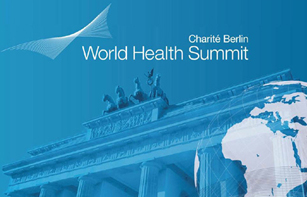More than 1 200 leading figures from the worlds of science, politics, economics and civil society are at the World Health Summit taking place from 23 – 26 October in Berlin to discuss some of the major challenges in global health today.
Under theme Today’s Science - Tomorrow’s Agenda five main issues are being addressed at the conference: the impact of climate change on health; the rapid increase in chronic diseases in developing and industrialized countries; the worldwide burden caused by mental diseases; vaccine strategies; and international health policy.
HIV featured high on the agenda as one of the greatest health crises of modern times. The urgent need to integrate HIV with other health services was stressed along with the importance of comprehensive and sustained access to health for the billions of people in need.
UNAIDS Deputy Executive Director, Programme, Paul De Lay gave the key note speech on the third day of the conference and outlined the need to successfully integrate non-communicable diseases with HIV.
“It is critical to scale up the response to infectious diseases to save millions of people,” said Dr De Lay. “This is where the AIDS response can help. Thirty years of innovation, expertise and highly developed service platforms can successfully inform and be integrated with responses for non-communicable diseases.”
Dr De Lay also chaired a working session on the role of new technologies in HIV prevention which looked at how the scientific breakthroughs of the past year have added to the set of tools available to stop HIV transmission. The session focused on how, by using the most effective set of actions within an enabling environment, numbers of new HIV infections could be significantly reduced.
The recent scientific advances are initiating some essential changes in HIV prevention and treatment. The main question now is one of implementation and scale up
UNAIDS Deputy Executive Director, Programme, Paul De Lay
“We are at a very unique time in the HIV epidemic,” said Dr De Lay. “The recent scientific advances are initiating some essential changes in HIV prevention and treatment. The main question now is one of implementation and scale up.”
At the close of the summit a set of recommendations will be put forward to decision-makers from the relevant fields. Such recommendations will aim to address some of the urgent challenges in medical research, global health and health care delivery discussed at the conference.




